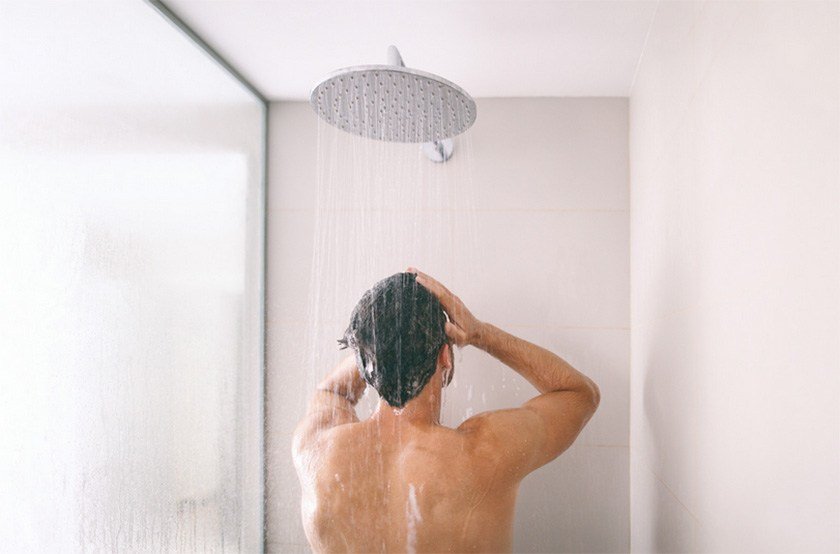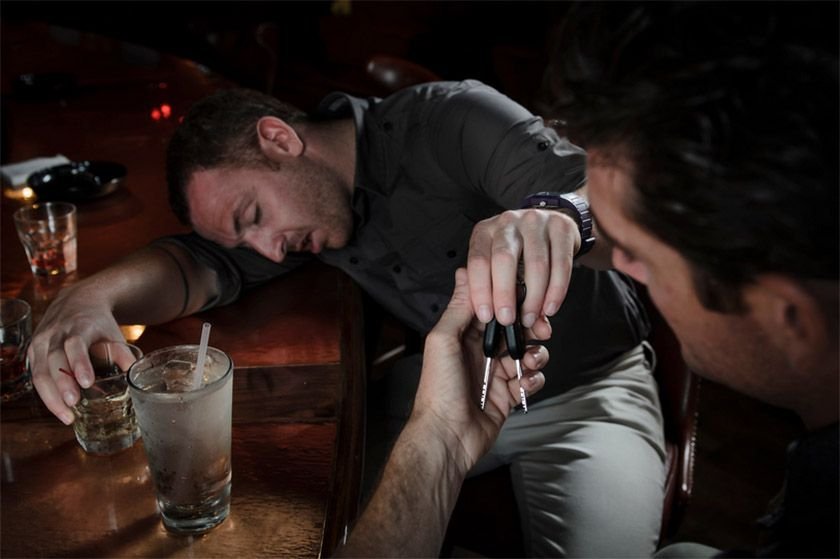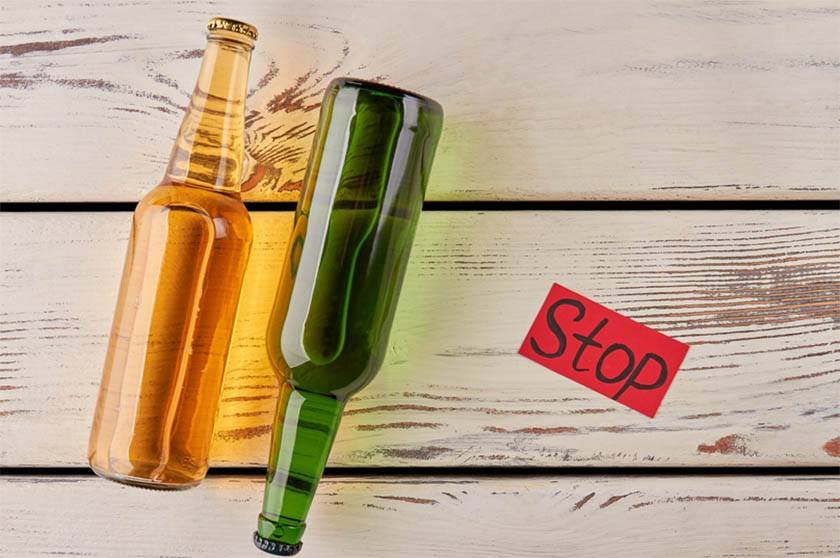Experiencing excessive intoxication after a night out is a common occurrence, and the pursuit of methods to sober up quickly and safely is a concern many individuals encounter.
This article examines a variety of strategies aimed at helping one regain clarity and composure, including hydration and nourishment, as well as fresh air and exercise.
Additionally, it addresses prevalent myths that often mislead individuals regarding effective sobering techniques. Therefore, whether one seeks quick fixes or safe practices, this article provides valuable insights into the best way to sober up efficiently.
What Are The Best Ways To Sober Up Quickly?
When aiming to expedite recovery from the effects of alcohol consumption, it is crucial to adopt safe and effective strategies that address the immediate symptoms of intoxication and facilitate overall recovery.
Recognizing the significance of hydration, along with the importance of balanced nutrition and adequate rest, can significantly assist in the detoxification process.
By emphasizing natural methods such as consuming water or fruit juice, and integrating wellness practices like sufficient sleep and proper nutrition, individuals can improve liver function and metabolism, thereby supporting the body’s recovery efforts.
Stay Hydrated
Staying hydrated is one of the most effective strategies to address dehydration resulting from alcohol consumption, which can exacerbate hangover symptoms such as nausea and headache.
Adequate hydration not only alleviates these discomforts but also plays a critical role in supporting liver function and promoting overall well-being.
Water serves as a fundamental component for various physiological processes, while electrolyte-replenishing beverages can restore lost minerals and facilitate recovery.
To achieve optimal hydration, individuals should aim to consume water consistently throughout the day, particularly after consuming alcohol, and consider incorporating drinks rich in electrolytes.
The best way to sober up is through this approach, which aids in detoxification and enhances metabolism, allowing the body to process and eliminate toxins more efficiently.
By prioritizing hydration, individuals can significantly improve their post-celebration recovery and support a healthier lifestyle.
Eat a Meal
Consuming a well-balanced meal can significantly facilitate the process of sobering up, as it provides the body with essential nutrients necessary for recovery from the effects of alcohol.
Carbohydrates play a crucial role in this process by replenishing glycogen stores that can become depleted after a night of drinking. Foods rich in complex carbohydrates, such as whole grains and starchy vegetables, can support energy levels and enhance metabolism.
Additionally, proteins contribute by repairing tissues and aiding in the detoxification processes performed by the liver. Incorporating quality protein sources, such as lean meats, legumes, or dairy, not only aids in rebuilding the body’s strength but also promotes optimal liver function.
Therefore, integrating these food groups into balanced meals is essential for a more effective recovery journey.
Drink Coffee or Tea
Consuming coffee or tea can provide a temporary enhancement in mental clarity, thereby improving mood and focus after the intake of alcohol. This effect is primarily attributed to caffeine, a central nervous system stimulant that promotes alertness and mitigates feelings of fatigue.
It is important to recognize that, while caffeine can stimulate metabolism and elevate energy levels, its effects can vary significantly among individuals. Prolonged or excessive consumption may result in restlessness, anxiety, and elevated heart rates, underscoring the necessity for cautious intake.
Understanding the balance between enjoying the invigorating benefits of caffeine and acknowledging its potential health risks is essential. Moderation is indeed key to maximizing the advantages while minimizing undesirable side effects.
Take a Cold Shower
 Taking a cold shower can invigorate the senses and potentially assist in sobering up by stimulating blood flow and providing a refreshing sensation.
Taking a cold shower can invigorate the senses and potentially assist in sobering up by stimulating blood flow and providing a refreshing sensation.
This immediate jolt can elevate mood and increase alertness, making it a popular choice for individuals seeking a quick energy boost.
The physiological effects extend beyond mere wakefulness – exposure to cold water can enhance hydration levels by promoting better blood circulation, which aids in nutrient transport and detoxification.
Practitioners often incorporate relaxation techniques, such as deep breathing or mindfulness, during their cold shower experiences, which is considered one of the best ways to sober up and maximize the opportunity for stress reduction.
This combination not only enhances overall wellness but also fosters improved resilience in facing daily challenges.
Get Some Fresh Air
Engaging in outdoor activities can serve as an effective method for clearing the mind and enhancing overall well-being following the consumption of alcohol.
When fresh air enters the lungs, it elevates oxygen levels in the bloodstream, which can rejuvenate both the mind and body. This increase in oxygen not only enhances cognitive function but also supports physical health by benefiting cardiovascular performance and boosting metabolism.
The advantages of this revitalizing experience are significant. Participating in outdoor activities, such as hiking, biking, or taking a leisurely walk in the park, can further amplify these positive effects.
Immersing oneself in nature encourages both physical movement and mindfulness, ultimately contributing to a more balanced and harmonious state of wellness.
Exercise
Engaging in physical activity can accelerate metabolism and support the body’s natural detoxification processes, facilitating safe sobriety.
Incorporating low-impact exercises such as walking, swimming, or cycling is particularly advantageous during recovery. These activities not only enhance circulation but also promote liver function, thereby allowing the body to eliminate toxins more effectively.
Furthermore, strength training, even in moderation, can increase metabolic rates by developing lean muscle mass, which burns more calories at rest.
Practices such as stretching and yoga are also beneficial, as they can alleviate muscle tension and improve flexibility, contributing to an overall sense of well-being.
By integrating these various forms of movement, individuals can establish a holistic approach to recovery that underscores the essential connection between physical activity and overall health.
Take a Nap
Taking a nap can be one of the simplest yet most effective methods for recovering from the effects of alcohol, as sleep facilitates the body’s healing and resetting processes.
During this restorative phase, the body’s metabolic functions are revitalized, aiding in the regulation of essential hormones and maintaining a healthy balance.
Quality sleep is integral to overall health, and understanding the best way to sober up can enhance your sleep quality, promoting better digestion, mood stabilization, and cognitive clarity.
To improve sleep quality, it is advisable to:
- Establish a bedtime routine;
- Minimize screen time before sleep;
- Create a calming environment.
Additionally, incorporating self-care activities such as light stretching or meditation can contribute to deeper rest, ensuring not only physical recovery but also the enhancement of emotional well-being.
Use Over-the-Counter Remedies
Utilizing over-the-counter remedies can provide prompt relief from common hangover symptoms, such as nausea and headache, following excessive alcohol consumption.
These options typically include medications such as ibuprofen or acetaminophen, which are effective in alleviating pain, while antacids may assist in settling an upset stomach.
Additionally, rehydration solutions or electrolyte drinks are beneficial in addressing dehydration, a significant contributor to post-party discomfort.
It is essential to consider safety measures, including avoiding the combination of certain medications with alcohol, as this can result in adverse effects.
Furthermore, individuals should always consult with a healthcare provider before initiating any new treatment, ensuring that the chosen approach is appropriate and responsible based on their unique health profile.
What Are The Safest Ways To Sober Up?
In the context of safely sobering up, it is essential to understand one’s personal limits and make informed choices, especially in social environments where alcohol consumption is widespread.
Wait It Out
One of the most effective and safest methods to achieve sobriety is to allow the body to metabolize alcohol naturally over time.
It is important to note that an individual’s metabolic rate can vary significantly due to various factors, including body weight, overall health, and habitual tolerance to alcohol.
For example, the best way to sober up can vary, as an individual with a higher body weight may process alcohol at a different rate compared to someone with a lower weight.
Additionally, individuals who consume alcohol regularly may find that their bodies adapt, enabling them to function more effectively while under its influence.
This highlights the necessity of patience and an awareness of personal limits – hastening the sobering process may result in hazardous outcomes. Understanding how alcohol affects the body enables individuals to make safer choices in social environments.
Have a Designated Driver
 The implementation of a designated driver is a vital safety measure that promotes responsible decision-making when consuming alcohol in social environments.
The implementation of a designated driver is a vital safety measure that promotes responsible decision-making when consuming alcohol in social environments.
By utilizing a designated driver, individuals can fully enjoy social gatherings without the concern of impaired judgment subsequently. It is important to recognize that this practice protects not only the individual but also others on the road.
Furthermore, awareness of alternative transportation options, such as rideshare services or public transit, significantly contributes to fostering a culture of safety.
Encouraging community members to adopt these methods reinforces a sense of social responsibility and enhances collective well-being, ultimately allowing everyone to engage in social activities with confidence while prioritizing safety.
Call a Ride Service
In circumstances where immediate sobriety cannot be attained, engaging a ride service constitutes a prudent alternative that prioritizes personal health and safety.
Utilizing taxis or ridesharing applications effectively mitigates the risks associated with driving under the influence, thereby significantly reducing the likelihood of road accidents.
This responsible decision not only safeguards individuals from potential legal consequences but also contributes to broader public safety efforts by alleviating the demands placed on emergency services and healthcare systems due to alcohol-related incidents.
By choosing these convenient transportation options, individuals can fully enjoy their evening without the concern of impaired driving, thereby promoting a culture of accountability and mindfulness.
Ultimately, embracing ride services enhances the overall experience of social outings while reinforcing the essential message of responsible drinking.
Seek Medical Attention
In cases where symptoms of severe intoxication or alcohol poisoning are evident, it is imperative to seek medical attention immediately to ensure safety and facilitate recovery.
Taking this urgent action can prevent potentially fatal complications such as respiratory failure, coma, or even death.
It is critical to recognize signs such as confusion, vomiting, slow or irregular breathing, and hypothermia, as these indicators suggest that the individual’s condition has deteriorated beyond typical levels of drinking.
Understanding the risks associated with alcohol poisoning is of utmost importance, and individuals should prioritize consulting healthcare professionals who can provide the necessary interventions and support.
Being aware of health risks and adhering to safety protocols is the best way to sober up, as it not only protects personal well-being but also promotes a more informed and responsible community regarding alcohol consumption.
What Are The Myths About Sobering Up Quickly?
 Numerous myths regarding the effectiveness of various methods for rapidly sobering up can contribute to misconceptions and potentially hazardous decisions following alcohol consumption.
Numerous myths regarding the effectiveness of various methods for rapidly sobering up can contribute to misconceptions and potentially hazardous decisions following alcohol consumption.
Drinking Coffee or Taking a Cold Shower
Many individuals believe that consuming coffee or taking a cold shower can significantly reduce blood alcohol concentration – however, these methods are often misunderstood and offer only temporary relief.
In reality, while they may induce a feeling of alertness or a brief sensation of increased wakefulness, neither method enhances the body’s ability to metabolize alcohol.
The liver, which is responsible for processing alcohol, does so at a fixed rate – typically around one standard drink per hour – regardless of any external interventions.
Research consistently indicates that the body requires time to recover from the effects of alcohol, and attempts to expedite this process can lead individuals to misjudge their level of intoxication, thereby increasing the risk of accidents or poor decision-making.
Understanding these limitations is essential for responsible drinking and ensuring safety.
Eating a Big Meal
The belief that consuming a large meal can quickly sober an individual is a prevalent myth that inaccurately represents the relationship between food intake and alcohol absorption.
While it is accurate that eating food can slow the absorption of alcohol into the bloodstream, it does not negate the effects of intoxication.
When food, particularly those high in protein and fat, is consumed, it serves to line the stomach and may delay the entry of alcohol into the bloodstream by facilitating gradual digestion. However, this process does not transform alcohol into harmless substances nor does it reverse its effects.
Research indicates that nutrients such as carbohydrates and proteins can aid in the more efficient metabolism of alcohol – nonetheless, they cannot entirely eliminate the intoxicating effects. Therefore, while a substantial meal may assist in managing the effects of alcohol and support recovery, it is not a definitive remedy.
Exercising
Exercising after alcohol consumption is often promoted as a means to expedite recovery – however, this notion fails to acknowledge that physical activity does not facilitate the elimination of alcohol from the bloodstream.
Upon ingestion, alcohol is primarily metabolized in the liver, a process that is time-consuming and remains unaffected by an individual’s level of physical activity.
While some individuals may perceive that exercising enhances alertness or energy levels, it is important to recognize that the body necessitates sufficient time to metabolize alcohol, and understanding the best way to sober up is crucial, as alcohol adversely impacts coordination, judgment, and physical capabilities.
For those contemplating light exercise following consumption, it is advisable to engage in safe activities such as walking or gentle stretching to promote circulation without risking overexertion.
Furthermore, maintaining hydration and prioritizing rest are essential components of recovery, enabling the body to manage the intoxicating effects more effectively.
Drinking More Alcohol
The notion that increased alcohol consumption can assist in sobering an individual is a dangerous myth that poses significant health risks, including the potential for alcohol poisoning.
This widespread misconception not only misleads individuals regarding their ability to recover from intoxication but also obstructs the body’s natural processes for metabolizing alcohol.
When individuals persist in consuming alcohol under these fallacies, they may encounter heightened levels of intoxication, which can overwhelm the liver and result in severe medical complications.
Ultimately, this belief can obscure the distinction between responsible drinking and excessive consumption, thereby jeopardizing one’s health and safety.
It is imperative to understand the actual effects of alcohol on the body to make informed decisions and ensure well-being in social contexts. Refer to our FAQ section below for further clarification.
The best way to sober up quickly and safely is to wait for your body to slowly metabolize the alcohol. This process cannot be sped up and attempting to do so can be dangerous.
The time it takes to sober up varies for each person depending on their body weight, metabolism, and how much alcohol they have consumed. On average, it takes about one hour for the body to metabolize one standard drink of alcohol.
No, there are no tricks or remedies that can help you sober up faster. Drinking coffee, taking a cold shower, or drinking water will not speed up the process and can actually be harmful to your body.
No, even if you feel like you have sobered up, it is not safe to drive after consuming alcohol. It is important to wait until you are completely sober before operating a vehicle.
No, mixing different types of alcohol to sober up is not safe. This can increase the effects of alcohol on the body and lead to alcohol poisoning. It is best to stick to one type of alcohol and pace yourself while drinking.
Some healthy habits that can help sober up quickly and safely include eating a meal before drinking, staying hydrated by drinking water in between alcoholic beverages, and pacing yourself while drinking. It is also important to have a designated driver or plan for alternative transportation when consuming alcohol.

